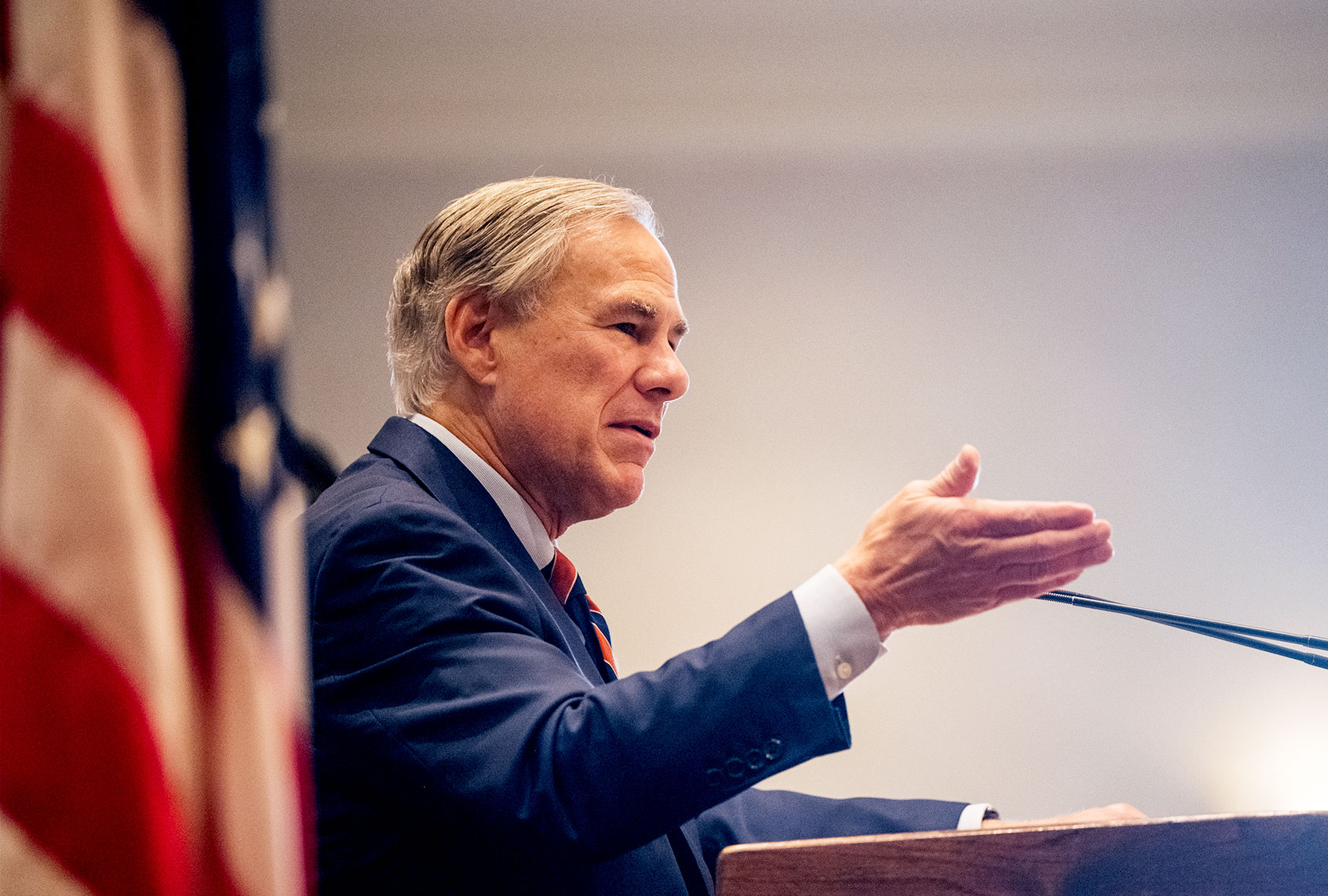A Texas World War II veteran has said his mail-in ballot application was rejected twice due to new Republican voting restrictions, according to KPRC-TV in Houston.
Kenneth Thompson, 95, told the outlet that he fears the new Republican voting law, SB 1, could prevent him from voting for the first time in his life.
“I’ve been voting many, many years and I’ve never missed a vote,” Thompson told the station, recalling paying a poll tax to vote in the 1950s.
The new Texas law, which includes numerous restrictions on ballot access, requires voters to submit their driver’s license number or a partial Social Security number, which election clerks then have to match to their voter registration. But more than 100,000 voters in the state do not have either number on file, and more than 700,000 do not have at least one of the numbers on file, according to the Texas secretary of state’s office.
“He registered to vote in the 1940s and they didn’t require that,” Thompson’s daughter, Delinda Holland, told KPRC.
Thompson said his application was denied twice because of the new requirement but Harris County election officials did not notify him of the rejection until he called to inquire both times.
“There’s gonna be a lot of people not gonna vote,” he told the outlet. “If I hadn’t have called in about mine, people wouldn’t have known.”
RELATED: Voter suppression in action: Mail-in ballot rejections many times higher under new Texas law
Holland tried to contact the county and the secretary of state’s office to add the data to his voter registration online only to discover there is no way to do that. Texas is one of about a dozen states that do not offer online voter registration.
“We know it’s a new law, we’re happy to correct it,” Holland told KPRC. “He’s a law-abiding citizen. He doesn’t want to miss voting, and yet, there’s no mechanism to add that driver’s license to your record.”
The report drew condemnation from veterans’ groups and voting rights advocates.
“This is reprehensible and unacceptable,” the progressive veterans’ group Vote Vets said on Twitter. “Texas has prevented a WWII Veteran from casting a ballot in the nation he proudly served.”
Thompson said he may be able to go vote in person in the state’s March primaries but worries that other voters will be denied the ability to vote.
“I can get out and move around and go to a regular polling place, but these people, lots of people just can’t,” he told KPRC.
State Rep. Gene Wu, a Democrat who has accused Republicans of voter suppression, argued that Thompson’s rejection shows that the Texas Republican strategy is “working EXACTLY as designed and intended.”
Want a daily wrap-up of all the news and commentary Salon has to offer? Subscribe to our morning newsletter, Crash Course.
Thompson is one of many Texans facing new challenges just to be able to cast his ballot. Some counties have been forced to reject up to seven times as many mail-in ballot applications as they did previously, as a result of the new requirements.
“In Harris County,” tweeted Harris County Judge Lina Hidalgo, “percentage-wise we’re rejecting 7 times more mail ballot apps than before, because of new TX voter suppression laws that create a maze of technicalities.”
The problems have been compounded by another provision in SB 1 banning election officials from sending unsolicited mail-in ballot applications. As a result, some voters’ requests have been rejected because they used dated forms that do not include new fields required by the law. In other cases, voters simply did not include the information because they were not aware it was necessary.
Many local election workers themselves are still unsure about the new rules, according to the Texas Tribune, and say that the secretary of state’s office has not been helpful.
The secretary of state’s office told the outlet it has been working to backfill its records to include both driver’s license and Social Security numbers and some election officials were unaware that updated data had been added to the state database.
“There were several large counties that are offline that were not aware that they’d have to go beyond their internal systems, and I’m one of them,” Williamson County elections administrator Chris Davis told the Tribune.
Texas Gov. Greg Abbott’s office this week tried to pin the blame on election officials, accusing them of rejecting “valid” applications because of the miscommunication and accusing election administrators of spreading “misinformation.”
But election officials told the Tribune that the problems were foreseeable long before the public dispute that emerged this month. Voting rights advocates say Texas Republican lawmakers bear “the responsibility to foresee problems in the implementation of a law.”
“They are now reaping what they’ve sown,” James Slattery, a senior staff attorney with the Texas Civil Rights Project, told the Tribune. “Though I should say it’s really the voter reaping what they’ve sown, which is the tragedy of all this. At the moment, it’s the voters that are facing the consequences.”
Read more on the voter-suppression campaign:

